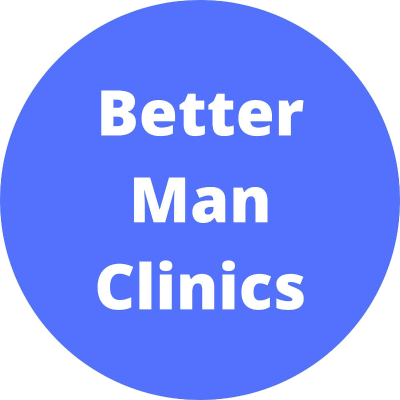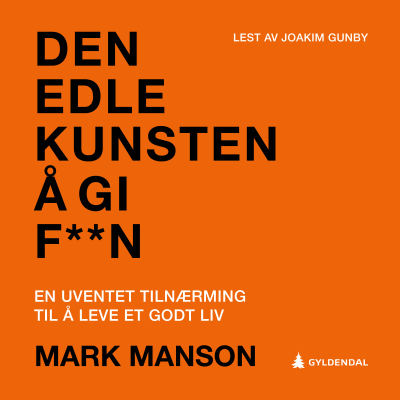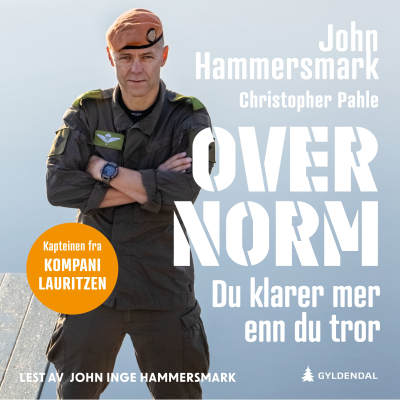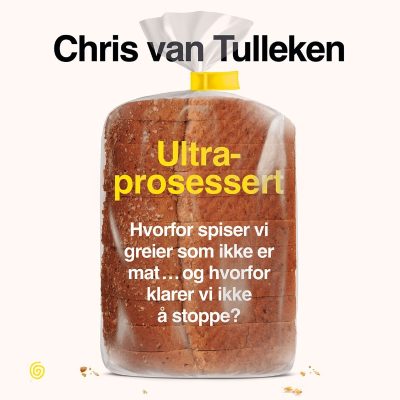
Better Man Clinics Podcast
engelsk
Helse og personlig utvikling
Prøv gratis i 14 dager
99 kr / Måned etter prøveperioden.Avslutt når som helst.
- 20 timer lydbøker i måneden
- Eksklusive podkaster
- Gratis podkaster
Les mer Better Man Clinics Podcast
The Better Man Clinics podcast helps men address the common problems they face every day but are often embarrassed or afraid to discuss. The point of the podcast is right there in the name – to help men become their best selves. Of course, getting “better” means different things to different men. For some, it may mean looking and feeling better. For others, it may mean getting a better night’s sleep. For still others, it might mean enjoying a better sex life. Regardless, Better Man Clinics podcast will empower men to understand their problems and provide them with some options for potential solutions. The podcast features interviews with actual experts on each topic we cover- board certified and licensed doctors, nutritionists, dentists, therapists, psychologists who have dedicated their careers to these issues. Does that mean that the podcast can replace your doctor or therapist? Of course, not. The podcast is NOT a healthcare practice and does NOT provide medical advice. Rather, the Better Man Clinics podcast is intended to serve as a trustworthy source of knowledge for men seeking to achieve a better version of themselves
Alle episoder
54 EpisoderBetter Stream: Optilume for the Treatment of BPH
In this episode we discuss Optilume, a novel treatment for the urinary symptoms experienced by men due to an enlarged or obstructing prostate (BPH). In previous episodes, we have covered a variety of other BPH treatments ranging from the historical gold standard (TURP) to minimally invasive surgical therapies (MIST) such as Rezum, Urolift, and iTind to more specialized treatments such as HoLEP and robotic simple prostatectomy. So how does Optilume fit into this spectrum of BPH treatments? Does it really stand out from existing treatments or is it just another procedure to add to the list of options in treating BPH? How is the procedure performed? What are the risks and benefits? What is the recovery like? And, of course, how effective is it? To help us answer these questions, we are joined by a true expert. Dr Dean Elterman is associate professor of urology at the University of Toronro. Dr. Elterman completed his medical degree followed by residency in urologic surgery at the University of Toronto. He became a fellow of the Royal College of Physicians and Surgeons of Canada in 2011. Dr. Elterman completed a two-year fellowship in Voiding Dysfunction, Neuro-Urology, Female Urology and Pelvic Reconstruction at Memorial Sloan-Kettering Cancer Center and New York Presbyterian Hospital/Weill Cornell Medical College in New York City. Dr. Elterman is a member of several professional societies including the Society of Urodynamics, Female Pelvic Medicine and Urogenital Reconstruction, the Society of Genitourinary Reconstructive Surgeons, the International Neuromodulation Society, and the International Society of Men’s Health. #optilume #BPH #prostate #podcast #clinic #treatment #urinarysystem
Better Stream: Aquablation for the Treatment of BPH
In this episode, we discuss Aquablation, a new treatment for the urinary symptoms experienced by men due to an enlarged or obstructing prostate(BPH). In previous episodes, we have covered a variety of other BPH treatments ranging from the historical gold standard (TURP) to minimally invasive surgical therapies (MIST) such as Rezum, Urolift, and iTind to more specialized treatments such as HoLEP and robotic simple prostatectomy. So how does Aquablation fit into this spectrum of BPH treatments? How is the procedure performed? What are the risks and benefits? What is the recovery like? And, of course, how effective is it? To help us answer these questions, we are joined by a true expert. Dr. Joel Hillelsohn is a Clinical Assistant Professor in the Department of Urology at the Grossman School of Medicine at New York University. Dr. Hillelsohn earned his medical degree from the Albert Einstein College of Medicine and then completed his residency training in Urology at the Westchester Medical Center and a fellowship in sexual medicine and reconstructive Urology at Mount Sinai Hospital.
Better Sex: Using Penile Injections to Treat Erectile Dysfunction
In this episode we discuss penile injections for erectile dysfunction, For most guys, treating erectile dysfunction means taking a pill. But what do they do if the pills do not work or if they are not able to take the pills because of certain medical conditions or other medications they are taking? For many such guys, a reasonable next step has been to try penile injections. But how do these injections work? What exactly is involved with administering them? Do they hurt? What kind of risks and side effects are involved? And, of course, do they actually work? To answer these questions and many more, we turned to a true expert. Dr. Arthur Burnett is a professor of urology at the Johns Hopkins School of Medicine. Dr. Burnett is the director of the Male Consultation Clinic at Johns Hopkins Hospital, a clinician-scientist at the James Buchanan Brady Urological Institute, and director of the Basic Science Laboratory in Neurourology at the Johns Hopkins School of Medicine. Dr. Burnett received his undergraduate degree in biology from Princeton University and his medical degree at the Johns Hopkins University School of Medicine. He completed his internship and residency in surgery, and subsequently residency and fellowship in urology at The Johns Hopkins Hospital. Upon completion of his urology residency, he received an American Foundation of Urologic Disease New Investigator Award to continue research work into the regulatory mechanisms of penile erection. He has maintained an active laboratory in neurourology since that time. Dr. Burnett is recognized for being a world-authority in the science and medicine of erectile dysfunction. He contributed original discoveries of the nitric oxide biochemical mechanisms in erectile tissue, which paved the way for the clinical development of oral medications to treat erectile dysfunction such as Viagra. Dr. Burnett has written more than 150 original peer-reviewed articles, along with numerous additional articles, editorials, and book chapters, relating to his biomedical research and clinical activities. He is also the author of a brand new book entitled The Manhood Rx: Every Man’s Guide to Improving Sexual Health and Overall Wellness. #erectiledysfunction #sex #erectiledysfunctiontreatment #penileinjections #penis #injections #alprostadil #trimix #bimix
Better Cancer Free: Focal Therapy for Prostate Cancer
In this episode we discuss focal therapy for the treatment of prostate cancer. Historically, men diagnosed with localized prostate cancer have had to choose between two treatment options: surgery and radiation therapy. Both options involve treating the entire prostate gland, regardless of the size, location, or number of cancerous tumors. Recently, however, more localized treatment options have become available for prostate cancer that involve focally treating only the tumors, rather than the entire prostate gland. So, what are these focal therapies? How do they work? What risks are involved? What advantages do they have over traditional therapies? And, probably most importantly, how successful are they at actually curing prostate cancer? To answer these questions and many more, we turned to a true expert. Dr. Arvin George is an Associate Professor of Urology at the University of Michigan. After obtaining his medical degree from the Royal College of Surgeons in Ireland, he completed his Urology Residency at the Smith Institute for Urology at the Hofstra North Shore-LIJ School of Medicine. He remained to complete his Endourology fellowship in New York gaining additional subspecialty expertise in robotic, laparoscopic, and percutaneous surgery. Subsequently, he completed a Urologic Oncology fellowship at the National Cancer Institute, National Institutes of Health. Dr. George’s research interests include minimally invasive and image-guided treatments, functional prostate imaging and focal therapy for prostate cancer. He is an active member of the American Urological Association, Society of Urologic Oncology, the Endourological Society, and the American College of Surgeons. #prostate #prostatecancertreatment #prostatecancer #focaltherapy
Better Sex: Delayed or Absent Orgasm
In this episode we discuss delayed or absent orgasm. Most guys are familiar with premature ejaculation, a condition in which men achieve an orgasm and ejaculate too soon. But what about guys who take too long to achieve an orgasm or cannot achieve one at all? How long is too long when it comes to reaching an orgasm? What causes delayed or absent orgasms? What are the treatment options and how well do they work? To answer these questions and many more, we turned to a true expert. Alexander W. Pastuszak, MD, PhD, is Assistant Professor of Surgery - Urology in the Department of Surgery at The University of Utah School of Medicine in Salt Lake City, Utah. Dr. Pastuszak earned his undergraduate degree at Yale University and completed his MD and PhD at the University of California, San Francisco. He completed his urology residency at Baylor College of Medicine and a fellowship in male reproductive medicine at Baylor College of Medicine. Dr. Pastuszak has authored over 80 peer-reviewed articles and numerous book chapters on men’s reproductive and sexual health, and he is editor of the textbook entitled Management of Sexual Dysfunction in Men and Women: An Interdisciplinary Approach. He has also been the Section Editor for the journals Sexual Medicine and Current Sexual Health Reports, and is Associate Editor of Sexual Medicine Reviews, the Journal of Sexual Medicine, and Fertility and Sterility. #orgasm #sexualdysfunction #anorgasmia
Velg abonnementet ditt
Premium
20 timer lydbøker
Eksklusive podkaster
Gratis podkaster
Avslutt når som helst
Prøv gratis i 14 dager
Deretter 99 kr / month
Premium Plus
100 timer lydbøker
Eksklusive podkaster
Gratis podkaster
Avslutt når som helst
Prøv gratis i 14 dager
Deretter 169 kr / month
Prøv gratis i 14 dager. 99 kr / Måned etter prøveperioden. Avslutt når som helst.

































